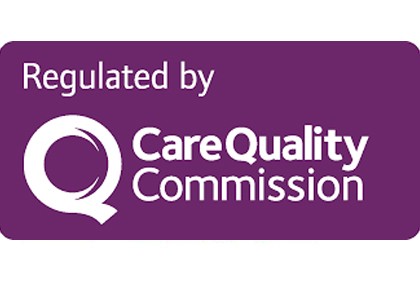What people say
The staffs are Unicare are very delightful , with such a willing and helpful personality. Thanks Unicare
Unicare Client
0208 239 6877
download now

Learn more about our companions and carers
Here’s what our clients say about Unicare Live-in Care
Call us on 0208 239 6877 or request a call back

The majority of people beyond retirement age wish to live an independent and active life in the comfort of their own home for as long as they possibly can. For older people with ongoing care needs, including those with long-term conditions such as dementia, Parkinson’s disease, MS or cancer, professional live-in home care makes this possible and is a preferable alternative to obtaining residence in a nursing or care home.
Equity release schemes enable house owners aged 55 years or older to cash in on the accrued value of their property without the need for selling it or moving elsewhere.
This enables you to use the value of your house to pay for your care fees. This means that you therefore do not have to sell your house and can receive live-in care in your own home. How much you can release depends on a number of factors such as your age, health, lifestyle, the kind of equity release plan you choose and how much your home is worth.
An immediate needs annuity is a type of insurance policy also known as a ‘care fees plan’. In return for the upfront payment of a one-off premium, the size of which is based upon an assessment of the care needs of you or your loved one, an immediate needs annuity is intended to provide an ongoing income to cover the costs of care, whether residential or provided by a live-in carer, for as long as they are needed.
A care fees plan can be purchased as soon as the need for care provision arises and, as the name suggests, benefits the recipient immediately. If the income from an immediate needs annuity is paid directly to you or your loved one’s registered care provider it is tax exempt under current HMRC policy. The annuity can also be index-linked in order to protect against the effects of fluctuating inflation.
Unicare can refer you to Symponia which is a professional body representing over 120 advisors (financial & legal) who are all specialists in the area of financing care fees.
Members of Symponia are hand-selected for their empathy, caring approach and knowledge. Working with Symponia member, families of those needing to pay for their care are able to ensure that fees are paid indefinitely and without worry.
This is available to people below the age of 65 and who have difficulties with mobility and activities associated with daily life due to a disability or long-term condition.
Non means-tested, the Attendance Allowance is available to people over the age of 65 who need help with personal care because of an illness or disability or who need constant supervision to protect against self-endangerment.
A person with severe mental impairment, such as someone in the advanced stages of dementia, is exempt from paying council tax. If living with a partner, the partner is entitled to a 25% discount in their council tax.
Although the rules on eligibility are strict, and a health assessment is required, NHS Continuing Care may be available to people with, for example, complex medical conditions, long-term illnesses, cognitive disorders or mobility issues which require additional care and support. Decided on a case-by-case basis, those who qualify will receive 100% of their care fees from the NHS.
Depending upon your individual circumstances there may be further options available to you to help self-fund care at home.
These can be explored with the help of an independent financial adviser or planner who specialises in the funding of long-term care. You can find your nearest long-term care funding adviser by contacting www.symponia.co.uk or using the search engine provided by the Society of Later Life Advisors.
Unicare provides exceptional fully-managed live-in care services which are comparably priced yet superior to those offered by a typical residential nursing or care home. You can learn more about the significant benefits to health and wellbeing our quality one-to-one home care provides here. Alternatively, to speak to someone about your home care requirements please call us on 0208 239 6877.


We understand that the cost of care is a major consideration when looking for later life support options, which is why we believe it’s important to help…


Cost is a significant factor when you’re considering any form of care. So knowing your options – from healthcare funding to benefits ….


Live-in care is fast becoming the preferred choice for those who need extra help to stay at home. Gone are the days when moving into a care home was inevitable…


For anyone requiring support and assistance with their personal care but who wishes to retain an independent lifestyle, hiring a live in carer provides…
The staffs are Unicare are very delightful , with such a willing and helpful personality. Thanks Unicare
Unicare Client
All that is required is a spare room for the carer to have their own space during breaks and to sleep, with a TV for their relaxation and internet access so they are able to complete the records required to manage your care. Your live-in carer will cook your daily meals and eat the same food, with you if you wish.
The carer will need to have a two-hour break in any 24-hour period, which many clients usually find works best when they are resting in the afternoon. If you require care and support during this period many will have family visit to cover this break, or we can organise for an hourly care provider to cover this for you.
At Unicare, we understand the importance of continuity and consistency of care. However as we are sure you will appreciate, that it is important for our carers own wellbeing to have sufficient time off work and holidays to rest, so that they continue to deliver the highest quality of care that you should expect.
You will have a team of two carers who will provide care in your home usually for two weeks at a time, rotating to the next carer after two weeks. Whilst this is a typical rota patten we do offer various patterns, including a four-week working period with two weeks off. A team of the same two carers ensure they really get to know and understand you as a person. If one carer requires a short amount of time off, we will always endeavour for the other carer to provide cover to ensure consistency of care.
As a fully managed service, however we have a rapid response and relief team of highly trained professional carers who can come to support you during your carer’s holidays and for longer periods of leave. These are always planned and scheduled well in advance and communicated to you and your family so you can be reassured that we can continue to meet your needs.
Unicare provides live-in care to couples. Receiving care in the comfort of the home you have enjoyed together for, what is probably many years with all your memories and possessions around you is fast becoming the preferred choice for couples, as opposed to enduring the upheaval, disruption and emotional upset of moving into a care home. Whether one of you is living with a specialist condition, like dementia or Parkinson’s and the other one just requires mobility or frailty care, or to recover from an operation, we will provide you with a perfectly matched carer who will support you both to live a better quality of life as a couple, but also individually according to your needs, choices and preferences.
One of the most significant considerations when planning care for a couple, is the cost of care. If a couple moves into a care home, the cost of care is typically double the price of receiving high quality, live-in care at home. With live-in care there is only one weekly fee for the care team, with a small supplement depending on needs, so it is a very cost-effective alternative to moving into a care home.
At Unicare, we know receiving care in the comfort, safety and familiarity of your own home has far reaching benefits in improving overall health and wellbeing for a person living with dementia. Moving at any stage in life can be very stressful, but can negatively impact a person who is living with dementia, which is why many families up and down the country choose live-in care as an alternative to moving into a care home to receive high quality dementia care.
All our professional carers receive unrivalled training in dementia care before they care and support someone with the condition. Our work with the Contented Dementia Trust to introduce the SPECAL approach to dementia care helps us to understand and discover what is important to the person living with dementia, enabling us to develop a purposeful and meaningful programme of care. Working closely with Dementia UK.
There may be care funding available to you to receive a live-in care service depending on your financial circumstances and your care needs. The Local Authority will only fund care at home (referred to as social funding) if your assets are worth less than £23,500, which we know that sadly for many families their financial situation exceeds.
If you are assessed and have an identified healthcare need you may be eligible for NHS Continuing Healthcare funding organised by your local Clinical Commissioning Group (CCG) to support you to receive care in your own home.
Many families are faced with having to fund the care they receive themselves (referred to as self-funding care). For these families there are options to help finance care at home, including a Care Fees Annuity, which is an insurance policy you purchase to cover the cost of your care, or by realising capital in your assets through an Equity Release scheme.
Please complete our short assessment form and one of our specialist team on live-in care will be in touch shortly.














